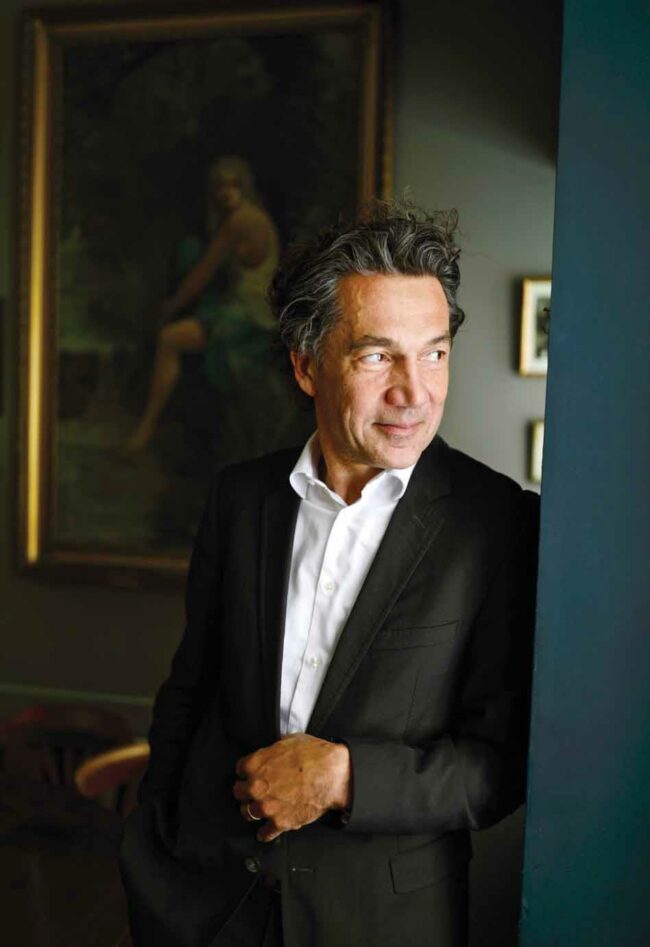In recent years, Bordeaux has become a major player in the marketing of major international brands, bringing about a copernican revolution in the very hushed world of fine wines
FRANCO-BRITISH FRIENDSHIPS have always been peculiar. When it comes to wine, it could take an even more acrimonious turn, as the international ambitions of Bordeaux are now on full display, to the detriment of London, historically more financial. The Bordeaux wine market is, in a way, Adam Smith’s invisible hand, a group of actors that nothing regulates and that everything unites for the benefit of a single cause, the sale of great Bordeaux wines. However,
This content is locked
You must be a subscriber to read this content, please subscribe today.
ADD MESSAGE TO USER LOCK
for several years now, and to the great displeasure of many local owners, these great wines have had to share this formidable tool with international brands, letting one think that the world of fine wines, which are traded more than they are drunk, could move its centre of gravity from London to the Bordeaux region. This silent revolution, because in the hushed world of Bordeaux, revolutions are made in silence and in the concerted effort that the reason of trade imposes, began at the turn of the century. The famous Californian brand Opus One, jointly owned by the Rothschild family (Mouton branch) and the Mondavi family, decided to sell its 2001 vintage via the Bordeaux market, quickly followed by Almaviva, another joint venture of the same Rothschild family with the company Concha y Toro (Chile), and then by the Albada Jelgersma family (now the owner of Giscours in Margaux) with its Tuscan domain Caiarossa. Very quickly, the success is there. Admittedly, the Bordeaux owners viewed this influx of competing brands, even if they were owned by worthy representatives of the region, with a bad eye, but with the internationalisation of great wines and the pressure increasing, the development of a few owners from the region towards the more welcoming terroirs has made it possible to oil the wheels that had tended to seize up. The proof is that nearly one hundred great international wines are now sold, tasted and marketed on the banks of the Garonne. Among them, the Tuscan wines Masseto and Ornellaia, Luce, properties of the Frescobaldi group, Tenuta Tignanello, Guado al Tasso (Antinori) or Bibi Graetz, the turbulent Italian with brilliant labels. Beaulieu Vineyard, the historic Californian brand owned by the Australian group Treasury Wine Estates, Catena Zapata of Argentina and even Château de Beaucastel with its flagship cuvée Hommage à Jacques Perrin, are also putting their trust in the Gironde people’s distribution know-how. The fertile year 2021 will see the arrival of new players: Yjar, the Rioja wine of Telmo Rodriguez; Beaux-Frères, Robert Parker and his brother-in-law’s former estate in Oregon, bought by the Henriot group; Casa Real Reserva Especial, the Chilean producer Santa Rita’s premium cuvée; the famous Australian brand Penfolds with its “Bin 169 – Coonawarra Cabernet Sauvignon” vintage 2018; Philipponnat, the first Champagne house to join the banks of the Garonne with its famous Clos des Goisses cuvée, from the steepest and perhaps sunniest terroir of this formidable region, that produces great sparkling wines. With all these brands, Bordeaux is envied. The market sequences its releases in March and October at a frantic pace, without however interfering with the release of the Bordeaux primeurs. Tastings are taking place, international critics, still confined by the pandemic, are absent and must let the French express themselves, and Bordeaux is becoming the epicentre of interest for the world’s greatest collectors. Bordeaux is also scary. London, the traditional place for the resale of great wines throughout the world, sees these French attempts as an attack on a position that it considered dominant. However, between the Brexit and the Chinese government’s takeover of Hong Kong, the British are no longer in business. Their business is being undermined by a Bordeaux ecosystem that we thought was too archaic to believe in New World wines and too self-centred to take an interest in other producing regions. Poor Albion. It thought it controlled everything in the world of wine, from international critics to the financialisation of great international wines, but now it is being undermined by three ambitious brokers and a dozen merchants capable of selling to thousands of customers. In rugby, this is called French flair; in business, pragmatism; in wine, the apogee. We will retain the Copernican revolution, it is more diplomatic.

























